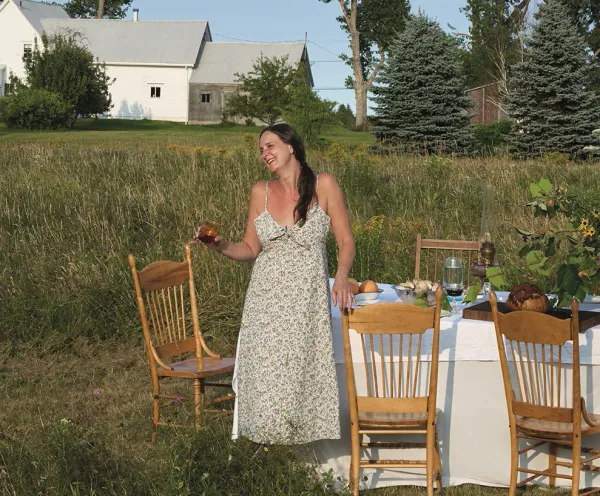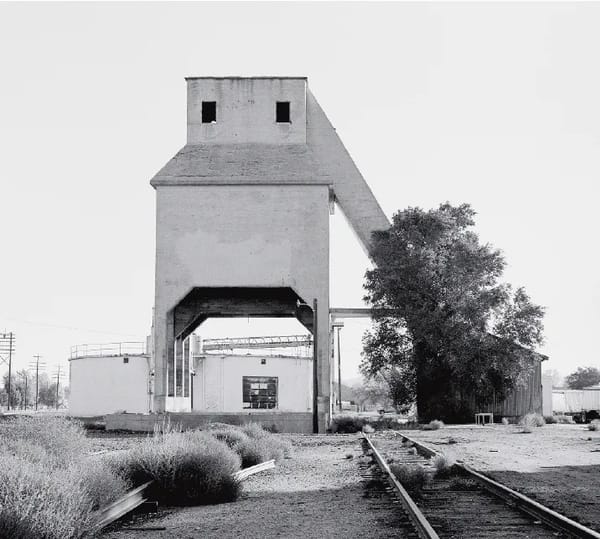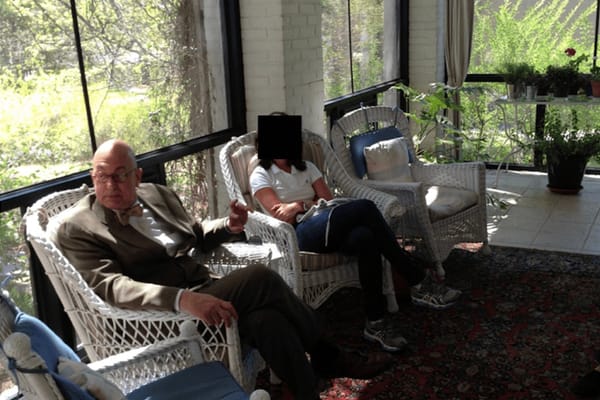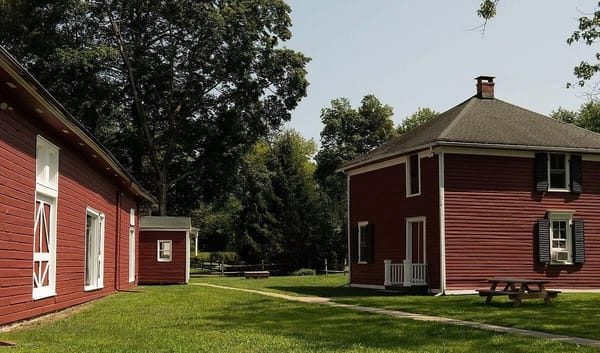Peter Davies and Mark Scherzer are the owners of Turkana Farms in Germantown, New York. This week Mark writes:

Those of you who have spent any social time with us undoubtedly know how large the date of September 11 looms in our life story. We've undoubtedly told you about living in the penthouse of the residential building closest to the World Trade Center's South Tower. You've heard about how Peter, who had returned from his first full summer on the farm on September 10, 2001, was quietly going through his check book at the kitchen table the next morning when the first plane slammed into the North Tower; how he had to race out to the roof terrace to put out the fires from the debris raining down; and how, when the second plane hit the South Tower about 15 stories almost directly above the apartment, most of our windows imploded and a section of the tower's corner sheathing crashed through one of the remaining windows. He's described how he had to crawl out, run down 13 flights of stairs, and begin seeking shelter in other buildings in the neighborhood, each successively shutting him and crowds of other safety-seekers out. You've heard how I, at my regular Tuesday morning Pilates session in Soho, tried to make my way home, snaking around roadblocks and the crowds streaming uptown, arriving at the corner of Broadway and Liberty Streets just seconds ahead of the South Tower's collapse, and how I then became engulfed in the roaring black unbreathable cloud that convinced me nuclear armageddon had begun. You've heard of our wanderings through streets deep in ash and the gruesome pieces of what was not reduced to ash, of our efforts to find each other, and of our transformation into urban refugees. You probably know that it was in the following sixteen months of exclusion from our home in New York, and while he was unable to operate the businesses he had operated from there, that Peter transformed the farm from a weekend retreat with a few sheep to a working farm. He sometimes ruefully refers to the farm as "The Osama Bin Laden Memorial Farm." This year, the anniversary of September 11 seems a rather ho-hum affair. There has been little media attention leading up to the day, and what there is seems focused on the continuing scandals: the corrupt bungled and halting Deutschebank demolition, the failure to rebuild Ground Zero and the failure to address the serious health problems emerging among many of the survivors, particularly the rescue and recovery workers. The commemoration of those who were lost, and the introspection regarding what the event says about our place in the world and how we should best respond, seem to be ever shrinking in prominence. For Peter and me, however, the anniversary continues to be a date to mark and a time to take stock. We first of all celebrate our survival from what could only be described as a close call. And we can't help but contemplate. Among other things, the event calls forth thoughts about impermanence and the quest for stability. Our sudden dispossession on that dreadful day, despite our comfortable middle class lives in the heart of a prosperous, stable country, could not help but impress upon me how inherently fluid and unstable our carefully structured lives actually are. My father had been dispossessed from his native Vienna and rendered a refugee by the Nazi takeover in the 1930's; my mother's parents came to the United States as refugees from oppression in Eastern Europe a generation before that. Peter lived through the blitz in Cardiff and came to the United States as the result of the social upheaval associated with a great war. If such upheaval and impermanence can repeat in generation after generation, it cannot be viewed as just an aberration of history, it seems, but must be treated as a permanent and inevitable aspect of the human condition. To many people, including me, the small family farm represents the antithesis of upheaval and impermanence. It is an enduring (though reduced in prominence) institution of American life. It follows a progression of seasonal tasks and projects that seem to recycle year after year. There are farms in New York state that go back 13 or 14 generations in the same family, and some of them have produced some of the same products for generations. That may be what the small farm represents, and why we were so drawn to putting down roots in a farm. It is appealing because it seems to be something permanent and stable. But it is really at bottom transient and impermanent. Indeed, on 9/11 I see it as more similar to a performance piece than an enduring edifice. The farm depends for its character on the creative vision of the farmer. Its depends for its productivity on the farmer's ceaseless application of labor, and for its order on a constant effort to control the will of nature. We are well aware that when the forces of human instability intrude and upset that dedicated effort, the farm, too, can disappear very quickly. —Mark Scherzer


Peter Davies and Mark Scherzer







